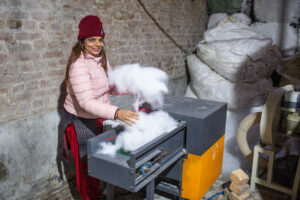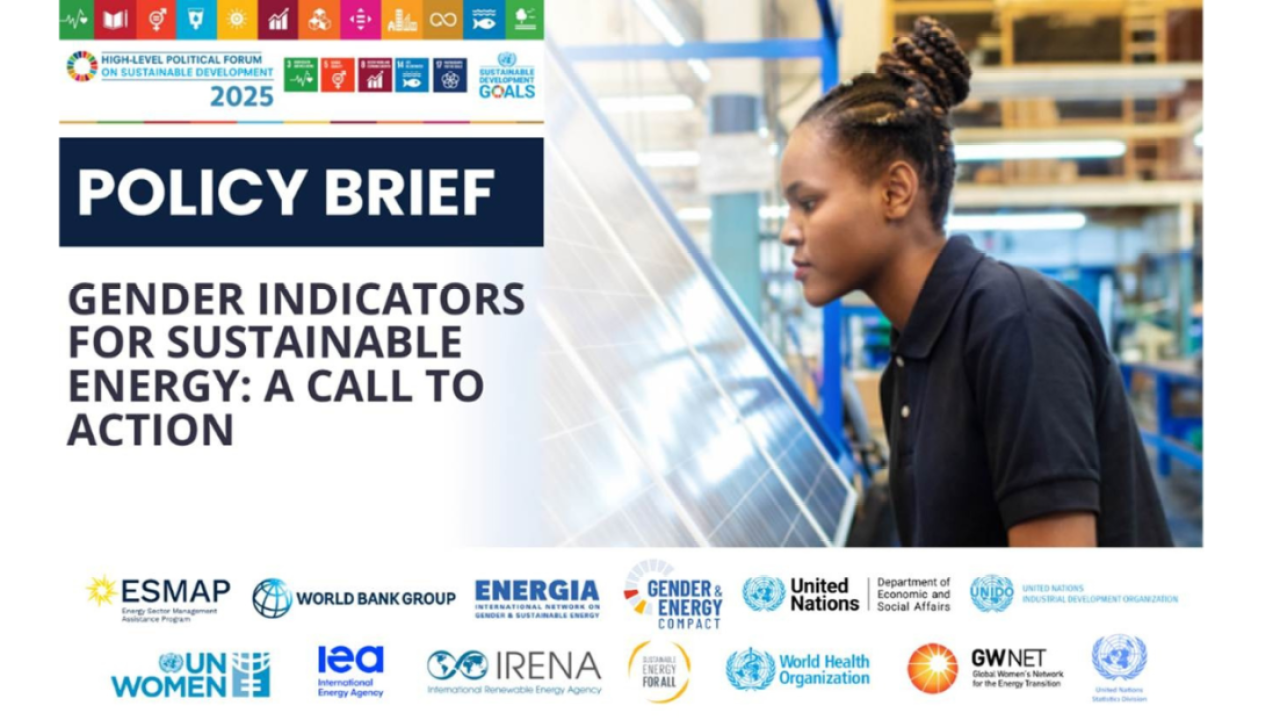This year’s International Women’s Day theme is Invest in Women: Accelerate Progress. ENERGIA wholeheartedly embraces this theme. Women are key in addressing the Social Development Goals (SDGs), dealing with the world’s biggest challenges today. These goals, including SDG7 of ensuring affordable and clean energy for all by 2030, can only be met if women are included and empowered; as leaders in decision making at all levels, as employees in the energy workforce and as business owners in the supply chains.
In our women’s economic empowerment (WEE) program, together with partner organizations on the ground, we support micro- and small-scale women entrepreneurs with training, skill building, mentorship and forging linkages with stakeholders. Over the years we have learned that one major barrier that these women business-owners encounter is access to finance. In our program we not only work with the entrepreneurs, but also with banks and other financial institutions, to facilitate the much-needed funding for the women to be able to grow their business.
On this International Women’s Day we share the stories of two inspiring women entrepreneurs: Fatou Thioune from Senegal and Babita Shrestha from Nepal. Both women are engaged in our program and with the support of our partners they have been able to successfully access funding to grow their business. Like Fatou and Babita there are thousands of women entrepreneurs more, who are having a real, tangible impact on their lives and that of others. Together we can make the change!
Invest in women: Contribute to their family’s well-being
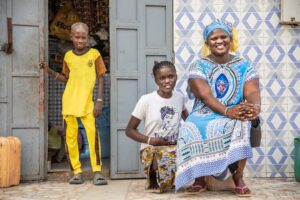
Meet Fatou Thioune and two of her kids. Fatou lives in a small village just over 100 km North of Dakar, Senegal. To provide for her family of ten, she runs a small convenience store and grows onions and eggplants, which she sells at nearby markets. Whilst the family could barely make ends meet, there was no room for contingencies or emergencies.
Fatou used to harvest and sell 11,500 kg onions and 6,000 kg eggplants per year, irrigating her plots with a pump running on diesel. With fuel prices going up however, she could no longer afford to irrigate all the plots. Fatou saw her crops wane, which put even more stress on the already limited family finances. How could Fatou properly support her family?
ENERGIA partner Energy 4 Impact (E4I) stepped in. With the help of E4I, Fatou was able to acquire a solar pump, costing 2,500,000 CFA, approximately EUR 4,000. Despite lacking the full amount, Fatou managed to gather 200,000 CFA to start.
E4I connected her with a solar pump supplier and a microfinance institution (MFI) for a blended credit approach. Together they negotiated a loan and repayment plan. The supplier covered 65% (1,500,000 CFA francs) of the loan and the MFI 35% (800,000 CFA francs). The repayment plan, spanning 24 months with four installments, aligned with agricultural seasons, ensuring Fatou’s ability to meet her commitment.
E4I then completed the package with training and technical assistance to operate the newly acquired equipment. As a result, Fatou’s production surged, surpassing previous volumes. Fatou now sells 28,000 kg produce per year, and earns more than before.
“Today, my income has significantly improved thanks to the solar pump acquisition,” says Fatou. “I now have profits of 3,050 euro, allowing me to meet my family’s needs”.
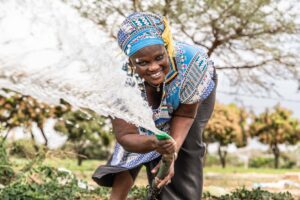
Invest in Women: Create employment and community leaders
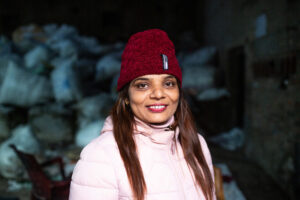
Babita Kumari Sah lives in Kalaiya, a city about 150 km South of Kathmandu, Nepal, with her husband and three sons. Some 15 years ago, she and her husband visited a recycled cotton factory in India and saw the need of one in their own town. Back home, they started a small business, processing limited amounts of wastage threads they bought from different spinning mills in the country. They sold their product to traders nearby, who used the cotton to produce sofas, mattresses, pillows, surgical pads and the like.
Over the years, Babita and her husband received some support from the Department of Cottage and Small Industries of the Ministry of Industry, Commerce and Supplies, to build this modest company, producing six tons of cotton per year. But Babita aspired to more!
A chance to take a leap forward came along last year, when she engaged in one of our WEE projects, fostering women’s inclusion and economic empowerment. Babita received support, mentorship and training in business orientation & management, technical skills, leadership and stakeholder relations management. Together with the project mentors she prepared a business plan and a proposal to apply for a grant at the Cottage and Small Industries Office, for the purchase of an electric fiber cotton making machine. Babita was thrilled to learn that the grant was rewarded to her! With the grant she could cover 80% of cost of the machine and complete the needed amount with her savings.
The investment has proven to be an excellent one. In less than a year the factory’s production has increased by 250% to 10 tons per year, sales are made to traders all over Nepal and Babita and her husband now employ 20 people!
Apart from getting the support she needed to advance the business, Babita was also selected Community Campion by the project. Together with other community champions she participated in training in leadership skills, awareness raising and community mobilization. Babita, who previously was too insecure to interact with stakeholders, now has joined a business association, organizes community awareness raising events and even has recorded educational videos!
“Empowering women through the project has been an immensely influential journey, not only for me but also for our entire community,” asserts Babita. “As a devoted advocate for our community, I have witnessed firsthand the profound impact of empowering women individually”.



